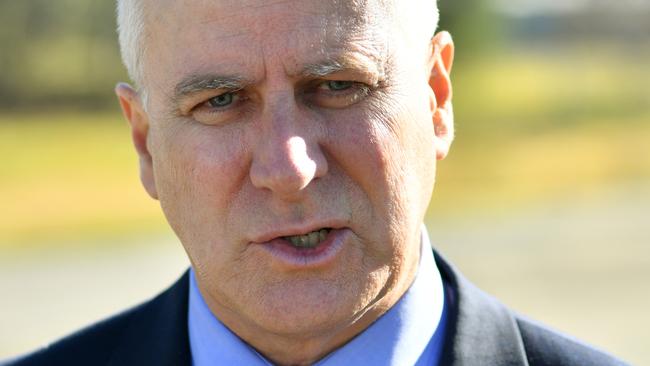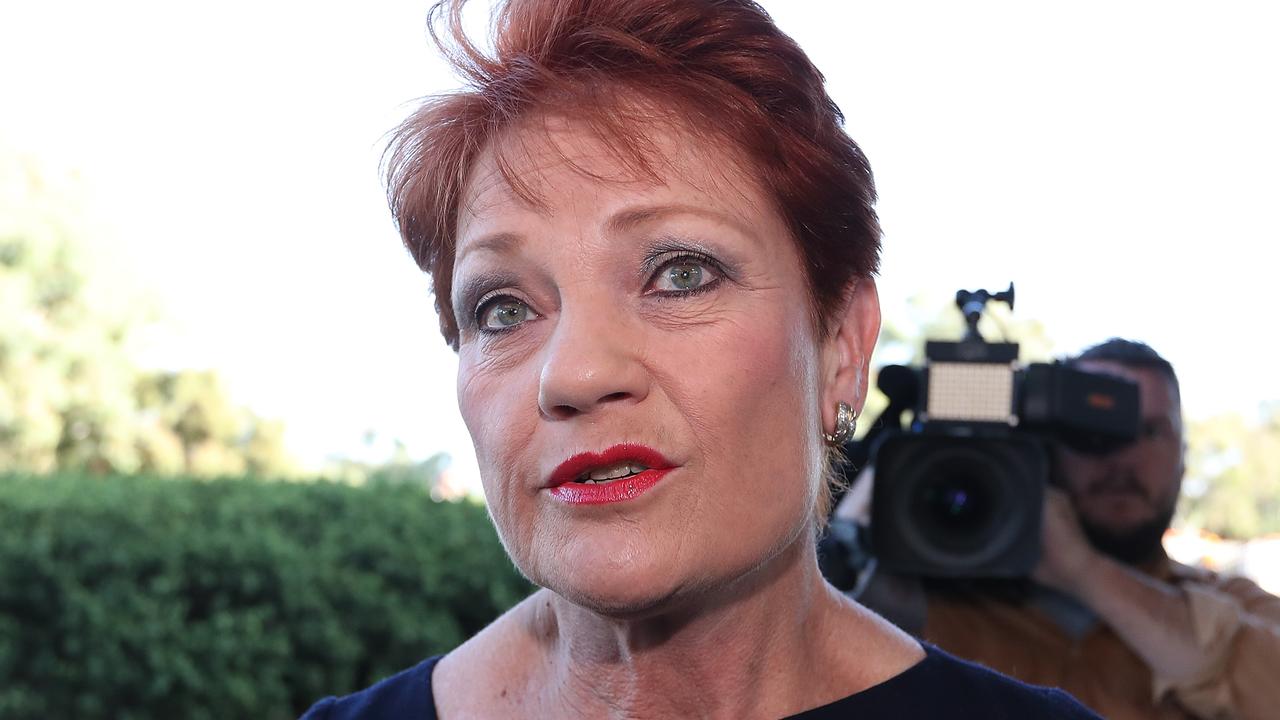McCormack retreats on farm worker visas
Michael McCormack is backing away from a commitment to deliver a new class of agriculture worker visa.

Michael McCormack is backing away from a commitment to deliver a new class of agriculture visa to source up to 100,000 overseas farm workers a year, angering Nationals MPs who believed the measure was written into the top-secret Coalition agreement.
The Deputy Prime Minister yesterday said the visa was only one of several options being considered, amid pressure from Foreign Minister Marise Payne that existing labour schemes for Pacific Island workers would not be undermined.
Foreign affairs analysts yesterday warned that the proposed new visa class, which would allow temporary workers from across Asia to compete for farm jobs with Pacific Islanders, would threaten Australia’s core strategic relationships as China seeks to expand its influence in the region.
Mr McCormack last month publicly declared he wanted to see the new agriculture visa class “sorted within weeks, not months”.
But in comments to The Australian yesterday, he suggested an announcement, which would open up work for foreigners, including those from China, India and Thailand, was no longer imminent. “The Australian government has made no decision on an agriculture visa and is continuing work to consider potential options which would improve the supply of seasonal workers and fill gaps in the farm labour workforce now and into the future,” he said.
Two Nationals MPs yesterday said Mr McCormack had been instructed by his partyroom to include an agriculture visa in the new Coalition agreement when Scott Morrison won the Liberal leadership on August 24.
They said they were now sceptical that the new visa was included in the agreement, which took some time to finalise, with negotiations delaying Mr Morrison’s arrival at Government House to be sworn in.
Senator Payne told The Australian yesterday that the government would ensure “Pacific countries would always take precedence” in any arrangement to boost overseas farm labour.
“We have reaffirmed that strong commitment to both the Seasonal Workers Program and the new Pacific Labour Scheme to our Pacific neighbours,” she said.
“We are committed to expanding labour mobility opportunities, and I recently signed new MOUs with Samoa, Solomon Islands and Vanuatu to join the Pacific Labour Scheme.”
The Pacific Seasonal Workers Program provided 8000 workers last year, and the new Pacific Labour Scheme for non-farm workers got under way only in July.
The National Farmers Federation has been pushing for the new visa class, citing research from the Australian Farm Institute identifying a 100,000 shortfall of farm workers to be filled each year.
Agriculture Minister David Littleproud has also committed to delivering the visa, telling the August 18 Nationals conference that MPs had to band together to ensure it came to fruition. “The partyroom needs to give the leader the imprimatur to go to the PM and say this is non-negotiable,” Mr Littleproud said.
Mr McCormack — who replaced Barnaby Joyce as Nationals leader in February — also came under pressure from colleagues during the energy debate for failing to advocate more strongly for measures to support investment in new coal-fired power plants.
ANU professor Stephen Howes said allowing other nations to compete with Pacific neighbours for farm work would damage Australia’s standing at a time when it was trying to “step up” its engagement in the region.
“It’s hard to think of something that would have a more adverse effect. Labour mobility is at the heart of the (foreign affairs) white paper and the step-up strategy,” he said.
Professor Howes said the government had also convinced Pacific nations to sign up to the Pacer Plus regional trade agreement by offering greater labour mobility as an incentive.




